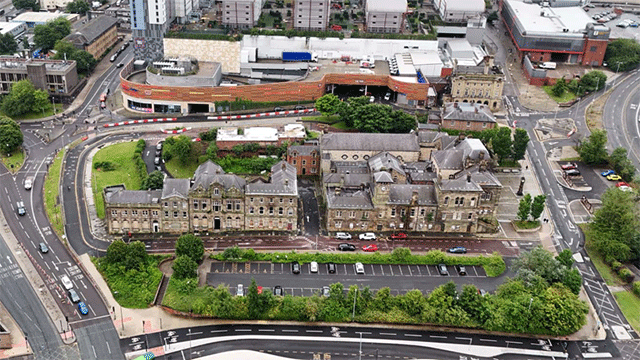Lease of ground-floor premises — Landlord’s consent required for structural alterations — Whether refusal of consent unreasonable — Considerations to be taken into account — Appeal allowed
The respondents purchased a 999-year lease of ground-floor shop premises with planning permission for Class A3 use for the sale of hot food on or off the premises. The lease contained a tenant’s covenant not to make any structural alterations without the landlord’s written approval, such approval not to be unreasonably withheld. The appellants subsequently purchased the freehold of the building with the intention of converting the upper floors into luxury flats.
The respondents obtained planning permission to convert the premises into an Indian restaurant. They wrote to the appellants, enclosing their architect’s plans for the proposed restaurant and seeking approval for the necessary structural alterations. The appellants refused on various grounds, one of which was a concern that the proposed alterations would cause structural damage to the property. The respondents brought proceedings seeking a declaration that approval had been unreasonably withheld. The judge granted the declaration sought, and the appellants appealed.
Held: The appeal was allowed.
The relevant considerations to be taken into account by the court when deciding whether a landlord’s refusal of consent to proposed structural alterations or additions was unreasonable were: (i) the purpose of the consent was to protect the landlord from the tenant effecting alterations and additions that would damage the landlord’s property interests; (ii) the landlord was not entitled to refuse consent on grounds that had nothing to do with its property interests; (iii) it was for the tenant to show that the landlord had unreasonably withheld consent to its proposals, and the tenant had to make those proposals sufficiently clear to enable the landlord to determine whether it should grant or refuse consent; (iv) the landlord did not have to prove that the conclusions that led it to refuse consent were justified, provided that these conclusions would have been reached by any reasonable landlord in similar circumstances; (v) it could be reasonable for the landlord to refuse consent to an alteration for a proposed use even if it was not forbidden by the lease; (vi) although, usually, a landlord needs to consider only its own interests, there could be cases where it would be disproportionate to refuse consent having regard to the effects on the landlord and the tenant; (vii) consent could not be refused on grounds of pecuniary loss alone, since the proper course for the landlord in such a case would be to ask for a compensatory payment; and (viii) in each case, it would be a question of fact, depending on all the circumstances, as to whether the landlord, having regard to all the reasons that had impelled it to refuse consent, had acted unreasonably. Applying those considerations to the present case, the appellants had not acted unreasonably in withholding their approval. The plans submitted by the respondents had clearly failed to satisfy the appellants that the proposed alterations and additions would not cause structural damage to the property.
Andrew Butler (instructed by Marsh Brown & Co) appeared for the appellants; Paul Clarke (instructed by Russell-Cooke) appeared for the respondents.
Sally Dobson, barrister








